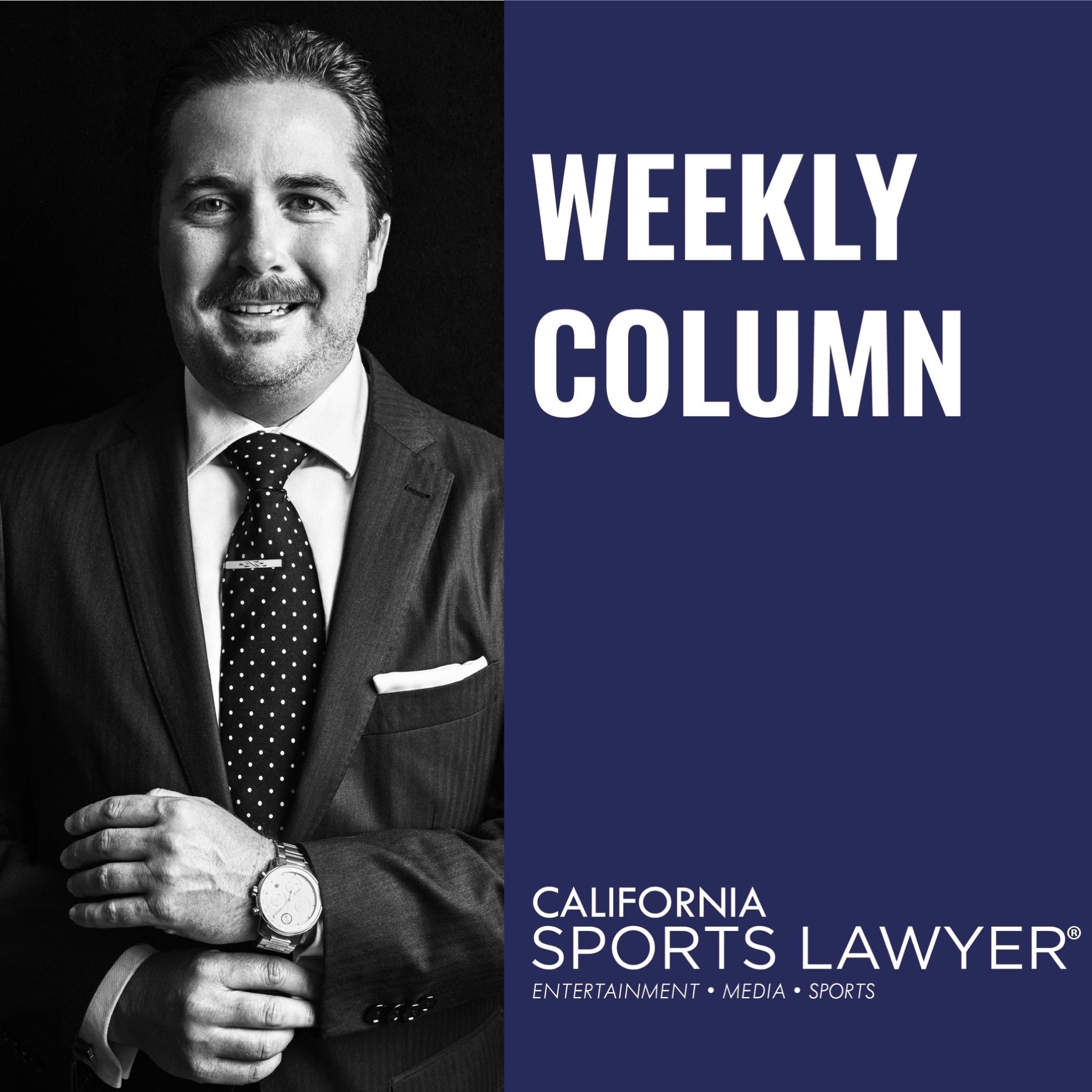In this week’s column, California Sports Lawyer® CEO, Founder, and Managing Attorney Jeremy M. Evans writes about the importance of performance, money, and dealmaking in sports when the systems meant to excel are slow to adapt to change and efficiency.
It is a tall task, but if the Wild West of NIL and college sports is to be tamed, it must be done through efficiency, excellence, and compliance that reflects the same.
You can read the full column below. (Past columns can be found, here).
~
Sports run on performance and money. Money needed to buy a franchise, sign an athlete to a contract, or getting paid for advertising and promoting sports and products.
One could say that sports is run on talent, on the field and in the front office. However, talent is only valuable insofar as to performance. Talent without performance is like buying dinner to stare at it. In other words, you are what you eat.
When a Power Five conference contemplates raising $2 billion dollars from private investors, the game of sports is no longer governed by athletic competition alone. This is a moment in time when money—not matchups—becomes the battlefield. From athlete advances to name, image, and likeness (“NIL”) collapses and delays, to front office dealmaking, the money behind the games is, increasingly, writing the rules.
The plot of modern sports is not on the field. It is in spreadsheets, deals, and compliance portals like NIL Go and the College Sports Commission audited by Deloitte. The real power players are being chosen off the field.
However, everything always comes back to performance. A game cannot be won without showing up and performing. Even a chance event or play, luck, serendipity, and fate requires some level of showing up. Only God’s grace requires acceptance without performance—performance is part of the reward and shows faith. Everything else in sports is how talent, preparation, and opportunity play when performance is required.
While Opendorse will do fine in terms of managing deals—the process for approving NIL deals must be completed with more immediacy. The problem with delays in approvals is that it leads to a lack of compliance through athletes, their representatives, and companies going outside the process to move a deal forward (e.g., collectives). Moreover, a delay in compliance leads to backlog and mistakes. In other words, the NIL Go system is meant to solve the balance between private, public, money, and education. It is a tall task, but if the Wild West of NIL and college sports is to be tamed, it must be done through efficiency, excellence, and compliance that reflects the same.
The Milwaukee Brewers front office (link above) is an example of where money, talent, and performance management will determine the difference between losing and success. College athletic departments are now front offices for their sports teams. Front offices that must recruit and manage dollars well for universities and their student-athletes.
The interesting point is not that money runs this world and sports, but that money and talent recruitment are unlimited in college sports. College sports only have natural barriers related to weather, geographic location, timing, benefits, personal interests, and results that will limit roster-building and dealmaking. The House settlement only limited and structured the share of revenue between universities and college athletes. It did not limit what collectives, alumni, and what brand partners can pay student-athletes through NIL deals.
The NIL deals will have to be approved, but do not be mistaken. College sports are not subject to the same union, league, and other restrictions that are present in professional sports that limit spending through salary caps, luxury taxes, and a draft. College sports have none of the common professional sports requirements or restrictions.
On the one hand, college sports are a dream scenario for competition, talent, and performance. On the other hand, it is a dangerous proposition without oversight and compliance. While approved revenue sharing and NIL are new to college sports, the principles in this NIL business stays the same: compliance is important because it levels the playing field and discourages cheating like pay-to-play. As much as student-athletes are being treated as professional athletes through NIL payments, student-athletes are still enrolled at a university and receiving an education—those realities must be remembered and protected by compliance and integrity. In the end, performance wins games, but money is increasingly deciding how the game is played.
~
About Jeremy M. Evans:
Jeremy M. Evans is the Chief Entrepreneur Officer, Founder & Managing Attorney at California Sports Lawyer®, representing entertainment, media, and sports clients in contractual, intellectual property, and dealmaking matters. Evans is an award-winning attorney and industry leader based in Los Angeles and Newport Beach, California. He can be reached at Jeremy@CSLlegal.com. www.CSLlegal.com.
Copyright © 2025. California Sports Lawyer®. All Rights Reserved.





